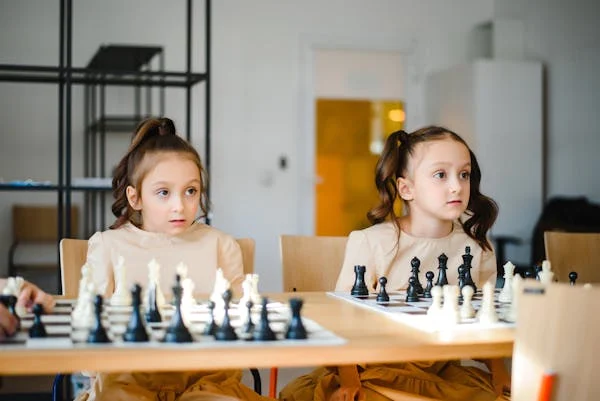If you’re a parent in Harrow wondering where to send your child for chess training, or maybe you’re an adult who wants to learn the game seriously, this guide is for you. You might have heard about many chess academies, maybe even seen a few local clubs in parks or community centres. But with so many options, choosing the best one becomes tough. That’s where we come in.
Online Chess Training
Landscape of Chess Training in Harrow and Why Online Chess Training is the Right Choice
Harrow has always been a city where education matters. Schools here focus on both academics and extracurriculars. Chess has gained steady popularity, thanks to school-level competitions and a few private trainers scattered across the area.
There are some libraries where chess boards are available. You’ll also see small groups playing casually in parks. But structured learning? That’s where things get tricky.
Most local coaches follow a very basic, informal setup. They meet students once a week, maybe twice, and often, the sessions are not based on a curriculum. There’s no real follow-up, no progress tracking, and no path from beginner to advanced levels. This is where most offline chess setups fall short.
Online chess training, however, changes all of this. It removes the limits of place, time, and teacher availability. A student in Harrow can now learn from a Grandmaster sitting halfway across the world. A child in Harrow can review past lessons anytime.
And perhaps the most important thing: online training allows for a fixed, proven curriculum that adapts to a student’s pace and level.
Global tournaments now happen online. Major players like Magnus Carlsen play online speed games. Platforms like Chess.com and Lichess.org have made the game available for everyone. So why should training stay behind?
When students learn online, they don’t just learn moves. They learn discipline, time management, clock control, and board vision—all in a controlled, structured environment. They get homework. They solve puzzles every day. They get rankings and can see how they’re improving.
That’s the power of online training.
How Global School of Chess is The Best Choice When It Comes to Chess Training in Harrow
Let’s be honest. Not every online chess academy is good. Some offer video lessons that never change. Others are so expensive that only a few can afford them. Some do not offer one-on-one attention. And most don’t have a solid system in place for growth, milestones, or goal-setting.
But Global School of Chess? That’s where things are different.
Let’s say you’re a parent of an 8-year-old child who just learned how to move the knight. At Global School of Chess, your child will be put into a “levelled path.” That means they won’t be pushed into intermediate lessons just yet.
They’ll start with something fun but structured. Puzzle time. Tactical pattern recognition. Simple checkmate setups. Gradually, they’ll move up to attacking combinations, opening traps, and middle-game planning. Every class builds on the last one.
And here’s the best part: Global School of Chess doesn’t teach chess just for the sake of it. They build thinking. They teach how to stay calm during a match. How to handle losses. How to stay humble after wins. These are life lessons.
Global School of Chess has real coaches—not automated bots, not part-timers who coach as a side hustle. These are passionate, trained chess experts who coach full-time. Many of them have played international tournaments. Some are FIDE-rated, some are Candidate Masters, and all of them know how to handle young learners and adult learners differently.
The classes are fully interactive. Students get assignments. They’re encouraged to participate in Global School of Chess’s monthly in-house tournaments. These tournaments are not open to the public, so students feel safe, less anxious, and more motivated. It’s a confidence-building space.
There’s also a strong focus on feedback. Coaches leave comments on every puzzle. Students are given weekly reports. And parents? They get regular updates—what’s going well, what needs improvement, what the coach is focusing on next.
This kind of system is rare.
If you’re in Harrow, your child doesn’t need to travel in cold weather or get stuck in evening traffic. They can learn right from home, with one of the best chess coaching teams guiding them step-by-step.
Global School of Chess makes learning personal, measurable, and deeply enjoyable.
Offline Chess Training
Let’s now talk about what chess training looks like in its traditional, offline form. This is the setup most people are used to—physical classes, club meetings, or private sessions in someone’s home or a local centre.
In Harrow, some offline coaching happens at community centres. There are a few local chess clubs that meet once a week or biweekly. You might even find retired players who give casual lessons at home or in small rented rooms. Some schools invite part-time coaches to run after-school sessions. On paper, this seems like a decent setup. But when you go deeper, a few gaps start showing.
Offline training often lacks consistency. Coaches may miss classes due to personal reasons. Students may skip sessions due to weather or other school activities. Sessions are sometimes too crowded, with one coach managing 10 or 15 students of different skill levels at once. The result? No student gets the attention they need.
Many offline coaches don’t follow a set curriculum. They might show a few tricks, play a few games, then move on. There’s no fixed roadmap. Some sessions focus only on openings, some only on puzzles. This makes it hard for students to build a complete understanding of the game.
Also, offline training rarely includes homework, performance tracking, or tournament exposure unless parents are deeply involved. That means students may play chess, but they don’t grow in a structured way.
And because most coaches operate independently, their quality varies. Some are really good. But others may not have the patience or updated knowledge to guide students properly, especially when it comes to advanced concepts or current international tactics.
Now, none of this is to say that offline chess is bad. It’s just limited. And those limits often become barriers for real growth.
Drawbacks of Offline Chess Training
Offline training feels real—you’re sitting across a physical chessboard, looking your coach in the eye. But that’s just the surface. There are several deeper issues that make it less ideal, especially in today’s world.
Let’s walk through a few of those.
First, offline training is not flexible. If your child has a cold or if there’s a train delay, they miss the session. And they don’t just miss one class—they miss a piece of the learning chain. In online training, they can simply reschedule or even watch a recorded session if needed.
Second, many offline coaches don’t use technology. In online classes, students can analyze their games instantly using advanced software. They can see heatmaps, move statistics, and even computer suggestions. This just isn’t possible with a physical board and a pen.
Third, there’s no fixed learning pace. In a physical group class, the coach has to slow down for the weakest student or speed up for the strongest one. That means others either feel bored or left behind. In online coaching—especially with Global School of Chess—students move at their own pace. They can review, repeat, or fast-track depending on their needs.
Also, offline chess coaching doesn’t usually provide extra practice material. Students go home with memories, not tools. With online training, there are puzzle sheets, video libraries, and homework assignments after every class. The learning doesn’t end when the class ends.
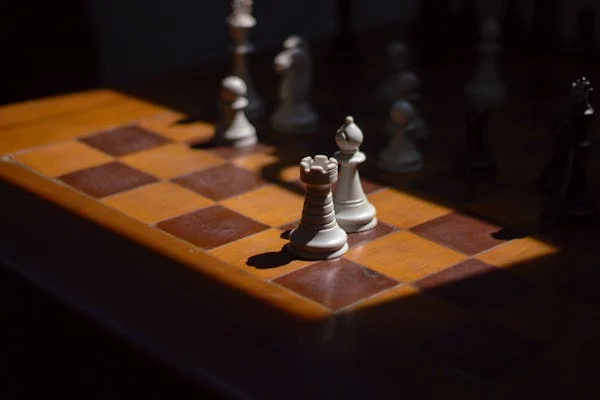
And finally, parents are often out of the loop in offline setups. They don’t know what was taught, whether the student is progressing, or what the next steps are. With Global School of Chess, parents get regular progress reports and can always reach out to coaches for feedback.
So when you really look at it, the drawbacks aren’t small. They affect how fast and how far a student can go in chess.
Best Chess Academies in Harrow, London
Now let’s go into the heart of this article. You’re here to know the best options for chess coaching in Harrow. And while there are some notable names, one stands far above the rest.
Global School of Chess
This is the number one academy not just in Harrow, but for anyone in the UK who’s serious about learning chess the right way.
The Global School of Chess is built on one idea: structure. Every student, no matter their age or skill level, gets a full roadmap. Not just random lessons. A full journey.
Students are first assessed. A coach watches how they play. Then they’re placed into a level—Beginner, Intermediate, Advanced, or Tournament. This placement is not permanent. Students can move up or down, depending on how they grow.
Classes are live. Not pre-recorded, not generic. Every student interacts with the coach, asks questions, and gets personalized advice. Sessions are fun, yet focused. There’s always a balance between theory, puzzle-solving, and game play.
There’s a curriculum that moves with the student. Openings. Tactics. Strategy. Endgames. Psychological training. Clock management. Tournament readiness. Each module is planned. There’s a reason behind every lesson.
But what makes Global School of Chess truly different is its tracking system. After every class, students get assignments. After every assignment, they get scores. Coaches leave written and verbal feedback. Parents get weekly updates. And every month, students play in an internal tournament—only for Global School of Chess students.
These tournaments build confidence. Students learn to handle pressure, make decisions faster, and stay calm. They even review their games with coaches later. Every mistake becomes a learning tool.
Global School of Chess also helps students prepare for real tournaments, including UK chess circuits and international online events. They help with FIDE ID creation, ratings, and training plans.
And one more thing. The coaches? They’re not random hires. Every coach at Global School of Chess is trained, certified, and closely monitored. Most of them are professional players. All of them are full-time chess educators.
This academy is built for serious learners. But it’s also built with love for the game.
Harrow Chess Club
Harrow Chess Club is one of the oldest names in the area. It has been around for many years and is a good place for casual and competitive players to meet. The club meets in person, usually once or twice a week, and members of all skill levels are welcome.
Players can play friendly games or join league matches against other local teams. It’s more of a social setup than a training setup.
There are some experienced players who offer tips to newcomers. But there is no fixed curriculum, no structured classes, and no long-term coaching plan. It’s mostly about playing games. This works well for those who already know how to play and want to test their skills.
But for someone starting from scratch, or looking to really improve, this setup won’t be enough.
Harrow Chess Club does not offer online classes. This makes it harder for students who can’t travel or want more flexibility. In comparison, Global School of Chess offers personalized attention, full progress tracking, and an international coaching team—all from the comfort of home.
London Academy of Chess and Education
This academy serves students across various parts of London, including Harrow. They offer some chess coaching through schools and occasional camps. Some of their coaches are experienced, and they do host tournaments for young learners now and then.
The lessons are usually face-to-face, mostly in schools, and tend to follow the school year’s calendar.
One challenge is consistency. Since many of their sessions are linked to school programs, they often stop during holidays. Also, the learning path depends on the coach assigned. Some students might get very strong coaches, others may not.
There’s no unified platform where all students get the same quality of content or tracking. Online options are limited, and the academy doesn’t focus on home-based students as much.
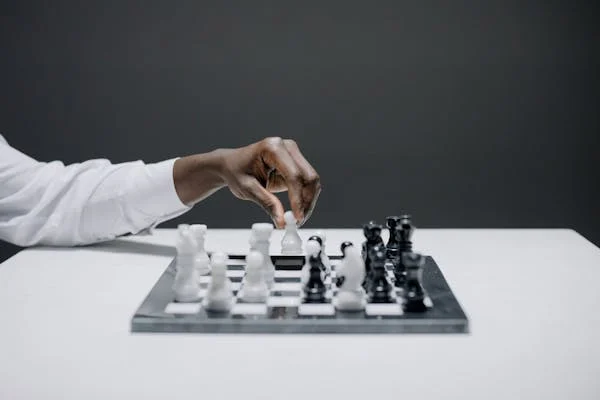
Compared to Global School of Chess, which offers continuous learning, daily puzzles, regular tournaments, and deep personalisation, this academy lacks the same level of planning and structure.
Uxbridge Chess Academy
Uxbridge Chess Academy is located not far from Harrow and offers weekend chess training to kids and teenagers. Some of the coaches are local chess players with tournament experience. Their training happens mostly in local halls, schools, and sometimes libraries. They also offer short holiday camps.
While this academy does a good job with group learning and basic tactical exercises, it often lacks one-on-one support. Students usually train in large groups, with less room for personal feedback or homework.
There’s also no online training system in place, which limits access for learners who can’t travel or prefer flexible schedules. Many parents prefer Global School of Chess because of the real-time feedback, structured homework, and steady progress tracking it offers.
Also, Uxbridge sessions are usually once per week. For a student who’s serious about improvement, one class a week, with no homework or tracking, is not enough.
Young Masters Chess Coaching
Young Masters offers both offline and some online chess lessons across different London zones, including Harrow. They have a few experienced coaches and provide workshops for intermediate-level students. These are good for those already playing in school teams or local tournaments.
However, the academy doesn’t seem to follow a single learning path. One student may be solving puzzles while another is learning endgames—within the same session. There’s no long-term roadmap, no fixed goals, and no progress reporting. Parents often have to guess how their child is doing.
While their workshops may be enjoyable and good for motivation, they don’t provide the same discipline and step-by-step coaching that Global School of Chess is known for.
Young Masters also charges a premium for some of their private sessions. Yet, these sessions may not come with structured homework, detailed game reviews, or tournament prep. For students looking to build a long-term chess profile, Global School of Chess is the more complete, supportive option.
Why Online Chess Training is The Future
The world is changing. So is the way we learn.
Think about schools. Most now use smart boards, online homework, and digital tools. Chess training is no different. What was once limited to physical boards and club meetings is now becoming fully digital—and with good reason.
Online chess training removes barriers. A student in Harrow can now learn from a master in India, a grandmaster in the US, or a coach in Eastern Europe. Time zones don’t matter. Travel doesn’t matter. The only thing that matters is the learning path.
Online training is also more affordable. Offline academies often charge extra for travel, room rental, or equipment. Online training eliminates all that. It’s lean, efficient, and focused entirely on the student.
But more than cost or access, it’s the quality that makes online chess training the future.
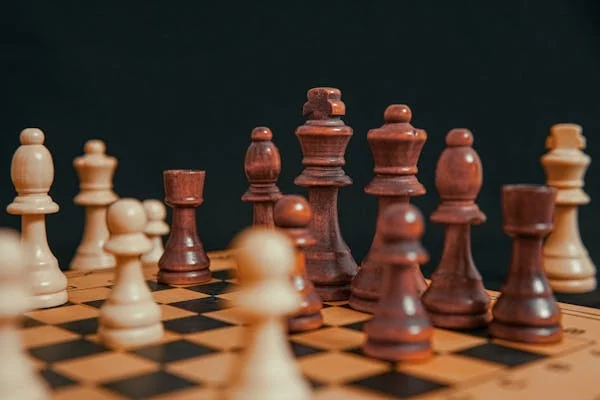
With online platforms, students can replay lessons. They can pause, think, and repeat. They can solve puzzles instantly. They can upload their games and get comments. They can track their own growth using charts and stats. That kind of precision just doesn’t exist in most offline setups.
And let’s not forget tournaments. Today, most big youth chess competitions offer online divisions. Students who train online are used to this format. They know how to manage clocks, nerves, and opponents from across the world—all from their home.
For parents, online training offers peace of mind. They can check in anytime. They can see how their child is doing. They don’t have to worry about travel or safety.
In short, online chess training isn’t just a trend—it’s the new standard.
How Global School of Chess Leads the Online Chess Training Landscape
When you look closely at why Global School of Chess stands out, it’s not just because it’s effective for students—it’s because the model itself is scalable, replicable, and aligned with how modern education systems and digital businesses are evolving.
Let’s explore how this academy isn’t just leading in pedagogy, but in strategic delivery, online engagement models, operational efficiency, and long-term chess education planning—areas that even education-focused businesses can learn from.
Strategic Personalization at Scale
Most online academies claim to personalize training. Few actually do it at scale. Global School of Chess has cracked this. Instead of overwhelming coaches with student tracking, it uses automation and templates for reporting, structured student milestones, and pre-set learning “tracks” based on age and skill.
This means a 7-year-old beginner and a 15-year-old intermediate don’t just get different lesson content—they follow a completely different journey.
For businesses, the takeaway here is massive:
Design your service model around learner types, not just content topics.
Create differentiated tracks from the start and make your delivery team operate through standardized checkpoints and review systems. That’s how you keep quality high while managing 1000+ students without burnout.
Performance-Driven Content Architecture
Each lesson at Global School of Chess is designed not to entertain, but to push the needle forward. Coaches don’t freestyle; they follow a tactical blueprint—Lesson Objective, Concept Drill, Application Game, and Puzzle Reflection.
This type of modular content design allows lessons to be repurposed across levels, reviewed after class, and built into a scalable archive of IP.
If you’re a business running online training in any subject, ask:
- Does every class tie to a performance metric?
- Can you reuse lessons in multiple learning tracks?
- Do you document and systematize every activity so future coaches can follow the same flow?
At Global School of Chess, content equals strategy. Every class feeds into a larger curriculum engine, not just a nice-to-have experience.
Tournament-Centric Growth Loops
Unlike other academies that treat tournaments as “bonus events,” Global School of Chess has embedded tournaments into the training lifecycle.
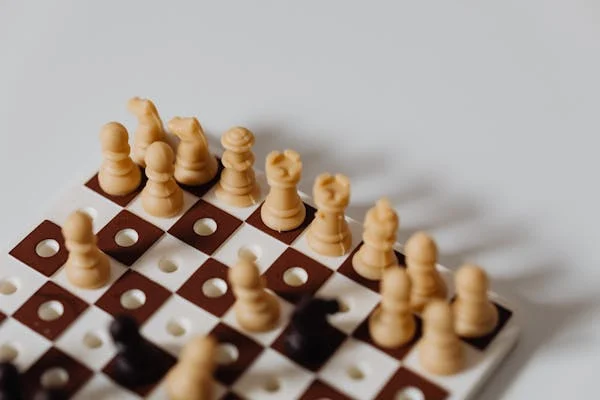
Here’s how it works:
- Every month ends with an internal tournament.
- Performance in tournaments updates each student’s skill record.
- This record influences the following month’s lesson difficulty.
Now think about this for a second. This is a feedback loop—the student trains, competes, receives feedback, and retrains. That is the fastest way to build not only mastery, but engagement.
Businesses should take note:
Design product features that reinforce the service experience.
In chess, that’s tournaments. In other domains, it might be live tests, demos, or challenges. Build in cyclical validation moments that reset the learning loop each month.
Deep Parent Engagement as a Growth Engine
One of the most strategic moves made by Global School of Chess is not just teaching students—it’s turning parents into performance managers.
Here’s how:
- Weekly video snapshots showing the student’s puzzle accuracy or opening mastery.
- Email reports that highlight improvements and challenges in non-technical language.
- Quarterly calls with coaches to set next-level goals for the student.
This isn’t just a communication strategy. It’s a retention strategy. When parents feel involved, understood, and part of the journey, they stick longer. And they refer more.
If you’re running a service-based business with minor-aged customers, ask:
- How do you educate parents or guardians about the student’s journey?
- Are you building a system of trust, or just reporting facts?
Global School of Chess builds champions at home—because it equips parents with the lens to see growth.
Operational Playbook That Scales Globally
Behind the scenes, Global School of Chess operates like a serious education startup. Scheduling, feedback, training sessions for coaches, tournaments, and content releases all run on systems.
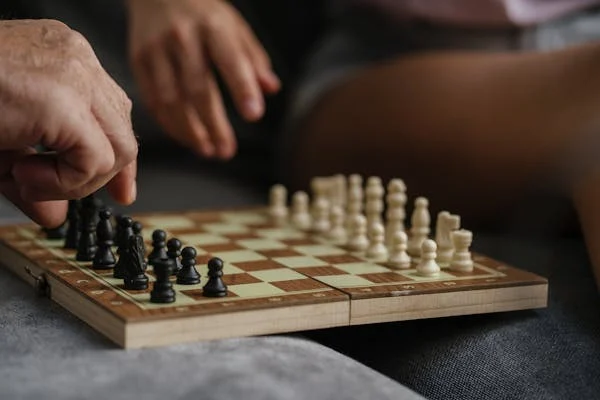
They use a central LMS (Learning Management System) to manage:
- Class scheduling and rescheduling,
- Puzzle bank assignments,
- Live tournament invites,
- Coach performance audits,
- Student milestone updates.
Each new batch that enters the academy is onboarded through a playbook—emails, welcome calls, baseline tests, all done in the first week. And everything is tracked.
For growing education brands, this is gold:
Systematize onboarding, delivery, and progress tracking. Don’t just rely on talented instructors. Build operational intelligence.
That’s what Global School of Chess has done—built an online school that runs like a digital-first business.
Coaching-as-a-Career, Not a Side Hustle
One of the most overlooked aspects of online education is coach retention. Most academies use freelancers or casual chess players who teach for some extra income. These coaches come and go. Students suffer.
Global School of Chess flips the model.
It hires coaches full-time, offers monthly evaluations, and provides ongoing training on:
- Teaching young learners,
- Handling emotionally sensitive kids,
- Chess psychology,
- Game analysis methods,
- Student-parent communication.
It’s not just coaching—it’s coach education. The academy invests in its teachers the same way it does in its students.
If you run a business where educators or instructors are core, consider:
- Are you upskilling your coaches regularly?
- Are you offering a path to become senior mentors or program leads?
- Are you treating your instructors like key assets?
Better teachers = better outcomes = stronger brand.
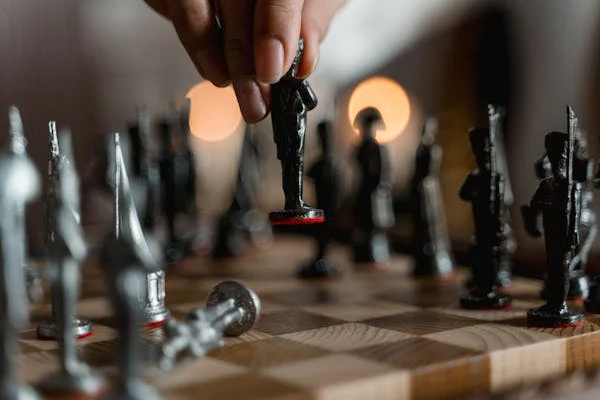
Global School of Chess has turned its teaching staff into a culture—and that culture shows in student results.
Wrapping It Up
Choosing the right chess academy in Harrow—or anywhere, really—is about much more than who teaches how a knight moves or where to place a rook. It’s about building habits, sharpening thinking, and laying the foundation for deep mental growth. Chess is not just a game. It’s a discipline. And the way it’s taught matters.

